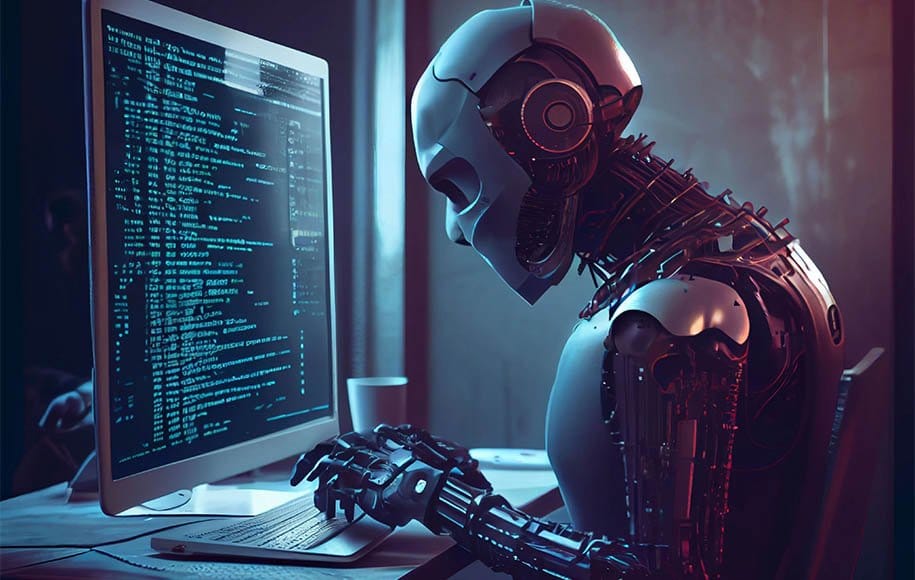
The Future of AI Chatbots: Trends and Predictions for the Next Decade
AI chatbots have come a long way from simple rule-based systems to sophisticated conversational agents powered by natural language processing (NLP) and machine learning. As we move into the next decade, chatbots are poised to become even more intelligent, versatile, and integrated into our daily lives. Here’s a glimpse into the key trends and predictions shaping the future of AI chatbots:

1. Enhanced Conversational Abilities:
- Human-like interactions: Advancements in NLP and deep learning will enable chatbots to understand and respond to human language with increasing nuance and sophistication. Expect more natural, engaging, and empathetic conversations that blur the lines between human and machine interaction.
- Personalized experiences: Chatbots will leverage user data and context to deliver highly personalized experiences, tailoring responses and recommendations to individual preferences and needs.
- Multilingual support: As the world becomes increasingly interconnected, chatbots will need to cater to diverse linguistic needs. Expect to see more chatbots capable of understanding and responding in multiple languages.
2. Increased Integration and Accessibility:
- Ubiquitous presence: Chatbots will be integrated into a wide range of platforms and devices, from messaging apps and social media to smart homes and wearable technology. This will make them readily accessible and seamlessly integrated into our daily routines.
- Voice-driven interactions: With the rise of voice assistants like Siri and Alexa, voice-driven interactions with chatbots will become increasingly prevalent. This will enable more natural and convenient communication, especially in hands-free situations.
- Omnichannel experiences: Chatbots will be able to seamlessly transition between different communication channels, such as text, voice, and video, providing a consistent and unified user experience.
3. Expansion into New Industries and Applications:
- Customer service: Chatbots will continue to play a crucial role in customer service, handling routine inquiries, resolving issues, and providing 24/7 support.
- Healthcare: Chatbots will assist in patient education, appointment scheduling, medication reminders, and even mental health support.
- Education: AI-powered tutors will provide personalized learning experiences, adapting to individual student needs and learning styles.
- Finance: Chatbots will assist in financial planning, investment advice, and fraud detection.
- E-commerce: Chatbots will enhance the online shopping experience by providing personalized product recommendations, answering customer questions, and assisting with the checkout process.
4. Advanced Capabilities and Features:
- Emotional intelligence: Chatbots will be able to recognize and respond to human emotions, providing more empathetic and supportive interactions.
- Proactive assistance: Chatbots will anticipate user needs and proactively offer assistance, even before being asked.
- Explainability and transparency: Users will be able to understand how chatbots arrive at their conclusions, fostering trust and accountability.
- Collaboration with humans: Chatbots will seamlessly collaborate with human agents, escalating complex issues and providing support when needed.
5. Ethical Considerations and Challenges:
- Bias and fairness: Ensuring that chatbots are free from bias and treat all users fairly will be a critical challenge.
- Privacy and security: Protecting user data and ensuring the responsible use of AI will be paramount.
- Job displacement: The increasing automation capabilities of chatbots may lead to job displacement in certain sectors.
- Misinformation and manipulation: Safeguarding against the use of chatbots for spreading misinformation or manipulating users will be crucial.
Predictions for the Next Decade:
- Hyper-personalization: Chatbots will become deeply integrated into our lives, acting as personal assistants, companions, and advisors.
- AI-powered creativity: Chatbots will assist in creative tasks, such as writing, music composition, and design.
- Autonomous decision-making: Chatbots will be entrusted with greater autonomy in certain domains, such as customer service and e-commerce.
- Augmented human intelligence: Chatbots will augment human capabilities, helping us make better decisions, learn faster, and communicate more effectively.
The future of AI chatbots is bright, filled with possibilities for innovation and transformation. By addressing the ethical considerations and harnessing the power of AI responsibly, we can create a future where chatbots enhance our lives and contribute to a better society.
Subscribe
Login
0 نظرات

